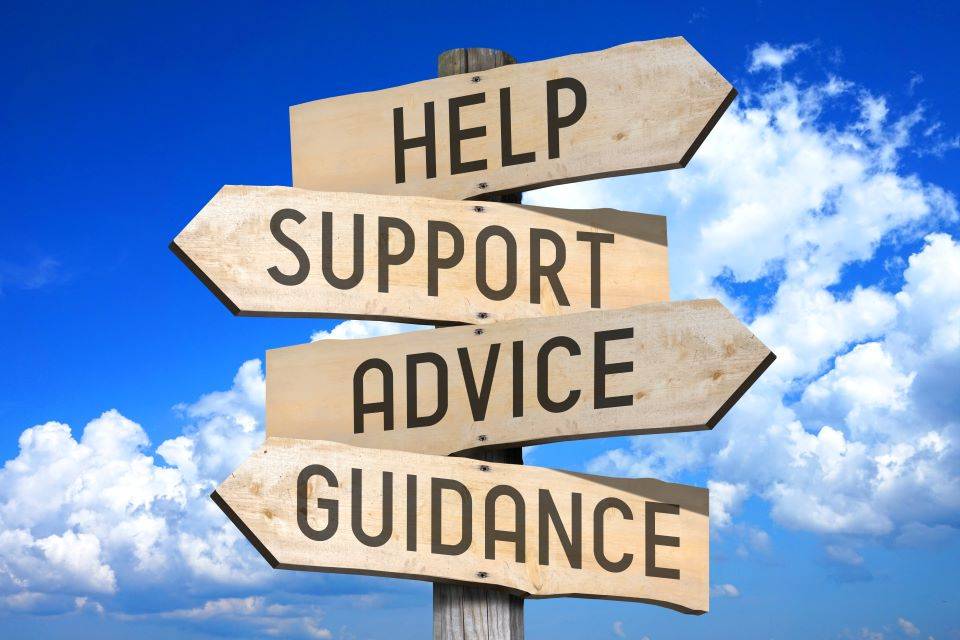What is an Intervention?

In an ideal situation, someone struggling with substance use disorder can recognize the damage their addiction is causing to both themselves and their loved ones and seek help because of it. This is often in response to a rock bottom that forces them to pause and reflect on their lives, but there are many situations where an addict may realize it sooner. Once they are aware of their problem, the real journey is able to begin and they can start their path through the five stages of addiction recovery.
Unfortunately, while some are able to start this process on their own, there are others who are unable to recognize the dangers of their drug abuse. When this is the case, it might be time for loved ones to step in and stage an intervention to help them see the truth.
What is an Intervention?
An intervention is when a group of people decide that it is time to interrupt someone else’s life to affect their behavior or the situation that they are in. In the case of substance use disorder, this means attempting to interrupt the vicious cycle of addiction that many people find themselves trapped in. For an intervention to be considered over other options, it means that the addict’s condition has grown out of control and they are unable to see how it is harming both them and the people around them. In addition to being unaware, the people that most need an intervention are usually in denial about their condition, choosing to blame others for their problems rather than accept that they are a result of their drug abuse.
The goal of an intervention is to force the addicted individual to face the reality of the situation they have created, in hopes of convincing them to seek out treatment. If the intervention is successful, treatment will likely be more effective since the individual heard the concerns of their loved ones, recognized the need for help and committed to going. Of course, carrying out an intervention is no easy task and for that reason should always be planned and carried out by a licensed interventionist and group of loved ones.
One of the key components to a successful intervention involves instituting boundaries around the addict. For example, a coworker that had been previously enabling drug abuse by covering their extra shifts, might establish a rule that they will never do so again if the drug use continues. Other boundaries include cutting off all financial support and no longer allowing them to visit your home. While often difficult to implement, boundaries are critical as they force the addict to face the reality of their situation and suffer the full consequences of their addiction. Most importantly, if you create a boundary, you must stick to it; you may want to give in at some point, but it is imperative to hold firm lines.
What Happens During an Intervention?
When the day comes for the intervention itself to be carried out, the team will confront the addicted person at a time when they should be able to stay and talk, such as when they have returned home from work. By this point a lot of preparation has already been done, and the intervention will mostly consist of presenting that information to the individual in a manner that makes it difficult for them to ignore. These events are usually intended to surprise the addict because doing so increases the odds that they will react honestly and gives them no opportunity to avoid the situation.
To confront the individual with the reality of their addiction, each member of the intervention group will discuss how it has negatively affected both their life and the addict’s life. Usually, whatever the member is going to say will be written down beforehand to ensure that their delivery is focused and effective even while emotions are high. These speeches are called an impact statement, and may consist of lists or letters, whichever is easier for that individual to say and for the addicted individual to understand.
Once everyone has finished, the team will collectively urge the addict to undergo treatment and present them with the most ideal options that were already researched. To add some extra weight to this, the group will also insist that if they refuse, new boundaries are going to be put in place that no longer enable their addiction. If all goes well, the individual will accept help and finally get the care they need to recover.
Barriers to a Successful Intervention
Before witnessing one, it is easy to underestimate exactly how powerful emotions can run during an intervention. This type of event is difficult not just for the addicted person, but for every member of the intervention group. Especially while reading their impact statements, group members are likely to become emotional, and depending on the addict’s reactions the event could easily become combative if not managed carefully. If the participants are not able to control their emotions enough to stick to the intervention plan, it will likely cause the entire event to fail.
The other primary barrier that causes an intervention to fail or to at least become notably more challenging is a person’s denial. When the person struggling with substance use disorder refuses to accept the information that their loved ones are presenting and instead chooses to reject the possibility that their addiction is as bad as others say it is, the intervention may take a turn for the worse. They may even attempt to outright deny that the addiction exists and blame their loved ones for scheming against them. For these reasons, it is imperative to have a licensed interventionist help assist you through such a difficult, but meaningful process.
Finding an Intervention Specialist
While it is possible to carry out an intervention without the help of an interventionist, it is strongly recommended not to do so, as it raises the risk of a failed attempt. Intervention specialists are individuals who have been carefully trained on how to plan and successfully execute an intervention, helping a wide range of individuals with varying addictions and circumstances. Enlisting their aid gives the team a valuable resource to receive answers to questions, personal training, event preparation, and plenty of emotional support.
When selecting an intervention specialist to add to the team, the group leader should take their time to ensure that they select an individual with the right level of experience, as well as a personality that merges well with the rest of the group. Both of these factors will increase the likelihood of a successful intervention.
Before choosing a specialist, there are few questions to ask first to assess each candidate, such as:
- What certification do they have?
- How many successful interventions have they held?
- Do they have any other useful credentials? (psychotherapist, clinical social worker, chemical dependency counselor, or similar backgrounds)
- Which intervention model do they prefer?
- How will they handle the situation if the addict refuses to participate or the intervention becomes emotionally tense?
Drug Intervention Services
While struggling to deal with a loved one’s addiction, it is often difficult for whoever planning the intervention to find the time and energy to gather their team, while also searching for an experienced specialist and anything else they will need. To ease this process, there are drug intervention services that they can reach out to in order to simplify matters. These organizations are sometimes a part of a rehab center and are useful for connecting the team with an intervention specialist, while also providing the resources they will need to stage a successful intervention. Some services will even facilitate the steps leading up to it, such as working with group members to prepare their impact statements.
Having this added resource is extremely valuable because staging an intervention is a very delicate process. There are many ways that one can go wrong, and without the right expertise and preparation, one of these mistakes is more likely to occur. These services also make it easier to enlist the help of a specialist that is certified, ensuring that they have a higher degree of experience in their field.
Offering Intervention Services Today
An intervention is never easy, but often, it is a crucial first step in the recovery process. Along with our highly comprehensive clinical program, Brookdale also offers intervention services to the family and friends of a person struggling with substance use disorder. If you or someone you know needs help and you believe an intervention is the right place to start, please give us a call at (855)575-1292. Our Admissions Specialists can guide you through the process and connect you with one of our licensed interventionists as early as today.

